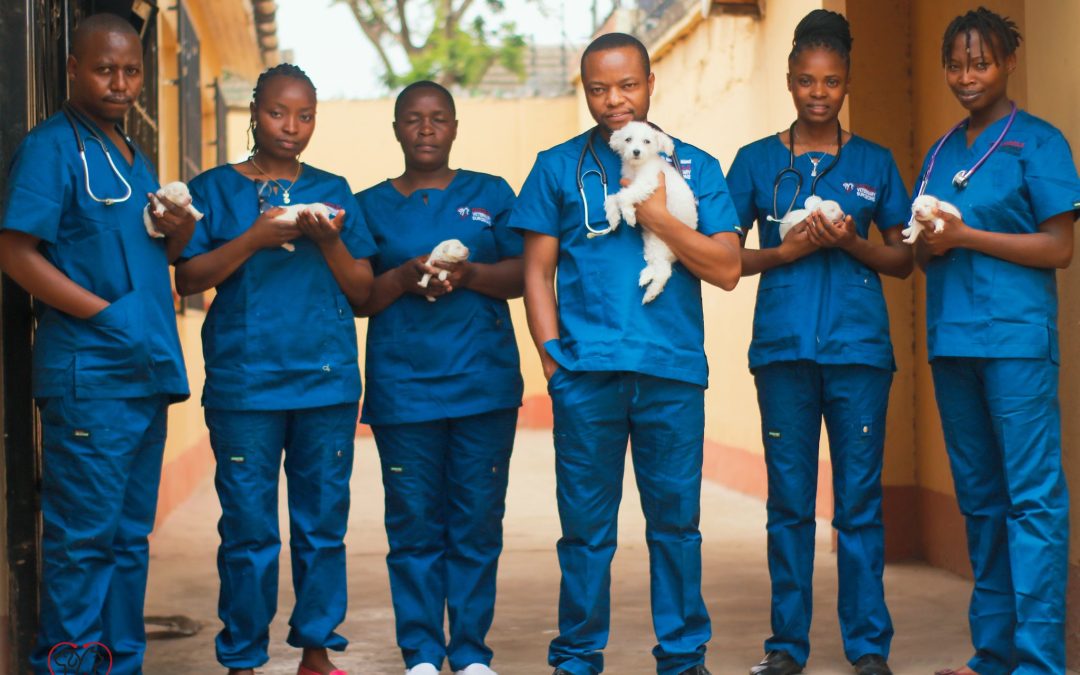Photo courtesy
Doctors charged with the noble task of taking care of farm and domestic animal health and welfare have marked the last Saturday of the month of April by observing the World Veterinary Day .
Falling on the 29th of April this year, the World Veterinary Day recognizes the role of veterinarians in animal health around the world. The World Veterinary day was created in 2000 by the World Veterinary Association to highlight and promote the lifesaving work performed by veterinarians around the globe, and serves as a reminder to pet owners on the importance of various aspects of animal care.
The 2023 World Veterinary Day is themed “Promoting Diversity, Equity and Inclusiveness in the Veterinary profession”.
This year’s World Veterinary Day has therefore been observed to raise awareness about the importance of veterinarians and their contributions to animal health, welfare and public health.
While their most renowned work ranges from health conditions to injuries in non-human animals, veterinarians by definition also play a role in animal reproduction, health management, conservation, husbandry and breeding and preventive medicine like nutrition, vaccination and parasitic control as well as biosecurity and zoonotic disease surveillance and prevention.
Beyond the activities linked to the health and welfare of animals, Veterinarians also have a key role in disease prevention and management, including those transmissible to humans, and to ensure food safety for the populations.
The Covid -19 pandemic was one critical season that saw more than 20 African countries among them Kenya, prioritize veterinary services as essential and therefore exempt from overall lockdown measures targeting non-essential goods and services. This effectively meant that, during the COVID 19 situation, among their numerous activities, the veterinarians were able to sustain those necessary to ensure that national and regional veterinary regulatory and inspection services could oversee the integrity of public health.
They were also able to ensure that only healthy animals and their by-products enter the food supply to guarantee food safety for the populations, and preventative measures, such as vaccination against diseases with a significant public health or economic impact, are maintained.
The recent drought facing the country after five failed rainy seasons has meanwhile, seen the country grapple with pastoral animal health and welfare, as domestic animals faced the ravages of dry rivers and poor pasture for their water and food . The National Drought Management Authority NDMA marked twenty three counties in the Arid and Semi Arid lands (ASAL) as the most affected by the prolonged drought, with livestock most affected by starvation affecting their body condition, often leading to death, due to depleted pasture and dry water sources. The onset of the March-April long rains further saw the ensuing floods sweep away humans and livestock alike.
“Floods in Samburu East in Naishamunya sub-location where 800 households were displaced and 625 small stock and households’ goods swept away while heavy rains in Wajir North and the Ethiopian highlands resulted in flash floods in parts of Wajir North and Eldas sub-counties that caused loss of lives, livestock and property and displacement of persons,” the NDMA Early warning bulletin of April 2023 read in part.
While concerted effort has been made to cushion the approximately 4.4Million Kenyans affected by the adverse climatic effects in the country, It is sadly unclear on whether any veterinary services by the national government has been offered to the affected animals, as health services remain a devolved function of the county governments.
This as Kenyans are referred to the Animal Diseases Cap 364 for a list of animal diseases which they must report to veterinary authorities should they suspect that their domestic animals are infected by. Notable among them is rabies that affects dogs, foot and mounth disease that affects cattle as well as the African Swine Fever that affects pigs and sadly has no known cure.
Nigerian Veterinarian and One Health advocate ,Ifeoluwapo Akanabi while commenting on the 2023 World Veterinary Day decried the overall inequality in the discharge of veterinary services terming it as detrimental to animal and public health.
She pointed out that,”Poorer communities bear the highest disease burden. Hence, disease surveillance and proper allocation of veterinary drugs, vaccines and education materials ensure equity and a safer world”,
Akanabi who is also a veterinary Lecturer added that, “Recognizing the significant roles and also strengthening collaborations among all groups of the veterinary team will promote inclusiveness which is pivotal to attaining a more productive and sustainable animal healthcare delivery system”
According to the World Organization for Animal Health, through proper surveillance, prevention and control measures, veterinary services reduce the impact of animal diseases on human health, livelihoods and food security. The international organization is further advocating for the use of paraprofessionals such as vaccinators, laboratory workers and meat inspectors whom it says are essential in serving rural populations that do not have access to veterinarians.
